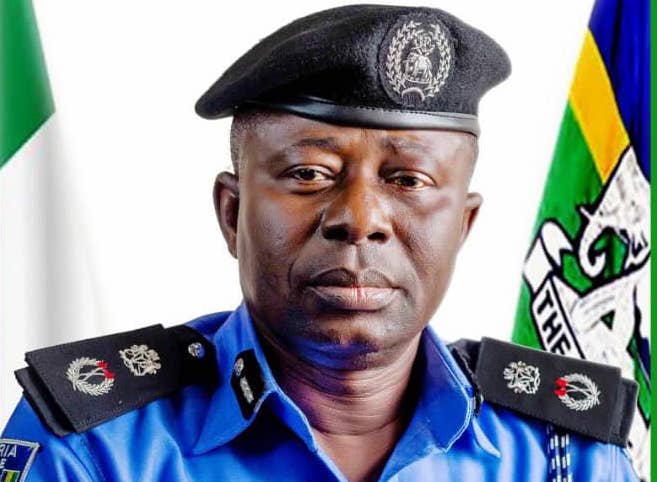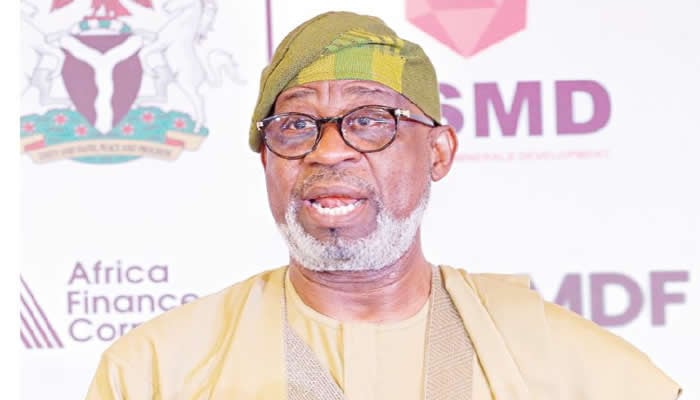The Commissioner of Police in the Federal Capital Territory (FCT), Ajao Adewale, has said illegal mining has become a cartel-controlled enterprise sponsored by powerful Nigerians, with proceeds used to bankroll terrorism and banditry. He warned that the activity is costing the country an estimated $9 billion (N13.7 trillion) every year.
Adewale spoke in Abuja at a media parley organised by the Nigeria Union of Journalists (NUJ) FCT Council with the theme “The Fight Against Illegal Mining: Role of the Media.” He described illegal mining as one of the gravest threats to national security.
“The Nigeria Extractive Industries Transparency Initiative (NEITI) cited that Nigeria loses up to $9 billion (N13.7 trillion naira) annually to illegal mining/gold smuggling in Nigeria. Illegal mining is not just a mere economic crime; it fuels insecurity, degrades our environment, undermines lawful investment, and robs our nation of vital resources,” Adewale said.
“Reports have shown that powerful Nigerians are the primary drivers of these operations, using foreigners merely as fronts while banditry and terrorism are bankrolled through this criminal network.”
He explained that organised criminal mining fits the global definition of cartel activity, particularly when groups control extraction in remote and unmonitored areas. “A global definition of organised criminal mining underscores that when criminal groups control mining at scale, especially in remote, unmonitored areas, the operations resemble cartel-like behaviour. In Nigeria’s context, these networks may exhibit coordinated control over land, extraction and smuggling,” he added.
Adewale cited a recent briefing by the Minister of Solid Minerals Development, Dele Alake, saying: “There are reports of powerful Nigerians behind illegal mining and funding insecurity. The Minister of Solid Minerals Development, Dele Alake, has pointed to powerful Nigerians as the primary drivers of illegal mining, noting the use of foreigners merely as fronts. He stated that banditry and terrorism are often funded and facilitated by these well-connected individuals, not grassroots artisanal miners.”
The police commissioner named Zamfara, Nasarawa, Kogi, Kaduna, Niger, Kwara, Osun and some parts of the FCT as major hotspots. “In FCT, there has been reportage of illegal mining activities in areas like Gwagwalada, Asokoro, Gaube, Kuje and Katampe Extension, with a combined total of 72 suspects arrested by the NSCDC, POLICE and EFCC between 2023 and 2024,” he said.
Commander of the Mining Marshals, Attah Onoja, also addressed journalists at the event, warning that cartels were funding propaganda to undermine enforcement. “We will not cave to any blackmail designed to weaken our resolve. Illegal mining cannot be defeated by enforcement agencies alone, and this is why we are calling on the media to be partners in this fight,” he said.
Onoja disclosed that the Mining Marshals—created under the Tinubu administration by directive of Minister Dele Alake—had dismantled illegal camps, prosecuted offenders, and restored order in volatile corridors since inception. He acknowledged operational difficulties, including entrenched interests and inadequate logistics, but insisted that the campaign was critical to Nigeria’s survival. “Our message is clear: Nigeria’s mineral wealth belongs to all Nigerians—not to be plundered by a few,” he declared.
The National President of the Miners Association of Nigeria (MAN), Dele Ayanleke, described illegal mining as a crisis fuelled by corruption, poverty and weak governance. “From child labour in Nasarawa’s lithium fields to mercury poisoning in Zamfara’s gold sites, the costs are severe,” Ayanleke said. “Illegal mining undermines legitimate investors, destroys communities, and fuels insecurity. Only sustained attention, especially from the media, can help dismantle these cartels.”
Chairman of the NUJ FCT Council, Grace Ike, urged journalists to deepen their work beyond regular reports. “As gatekeepers of truth, we must investigate, expose, and educate the public on the devastating effects of illegal mining,” she said.
She further warned against sensationalism, stressing the importance of transparency and accountability. “Our credibility depends on balanced reporting, free of sensationalism, while ensuring transparency and accountability in the sector. As usual we must investigate, expose, and educate the public on the devastating effects of illegal mining, particularly on communities and water resources.
“Through balanced and accurate reporting, the media can illuminate the hidden dangers, portray the human and environmental costs involved, and urge policymakers to take decisive actions.
“The NUJ FCT will continue to champion and amplify the voices of affected communities, ensuring that their stories and struggles are heard nationwide because empowering citizens with information gives them the tools to demand better regulatory oversight and environmental protections.”
FOLLOW US ON:
FACEBOOK
TWITTER
PINTEREST
TIKTOK
YOUTUBE
LINKEDIN
TUMBLR
INSTAGRAM































